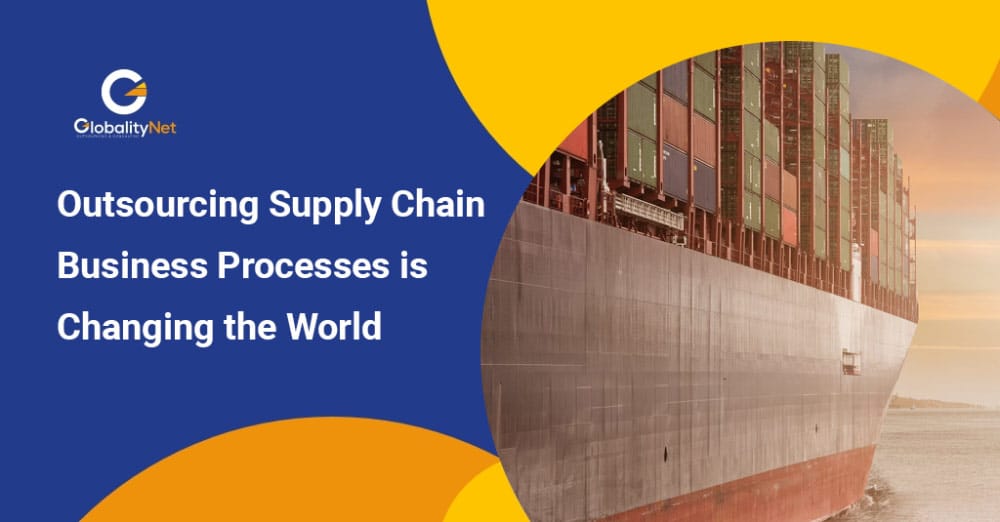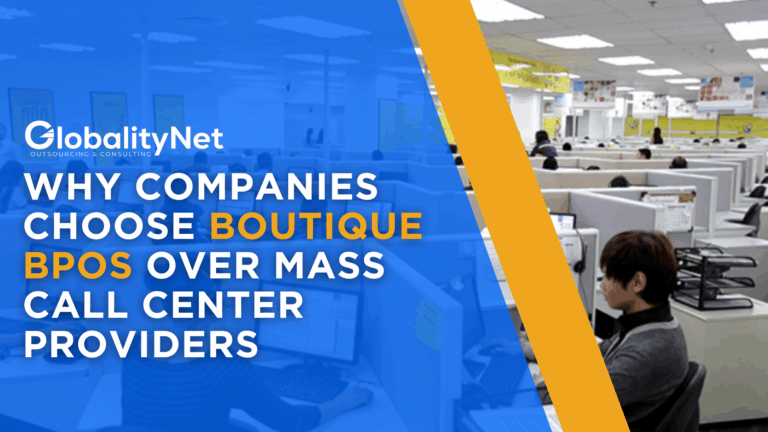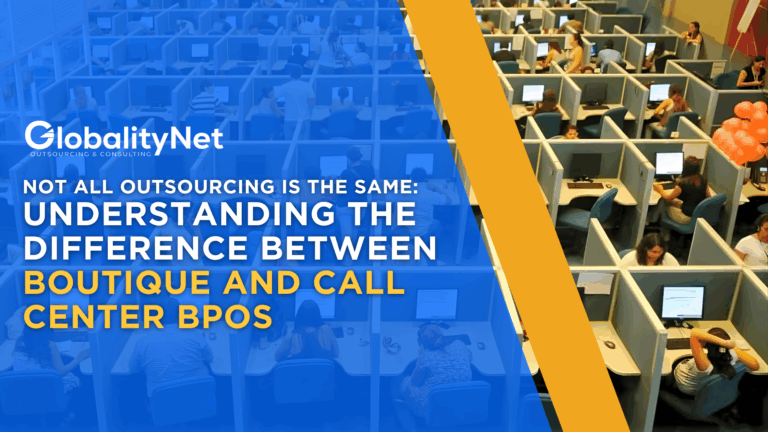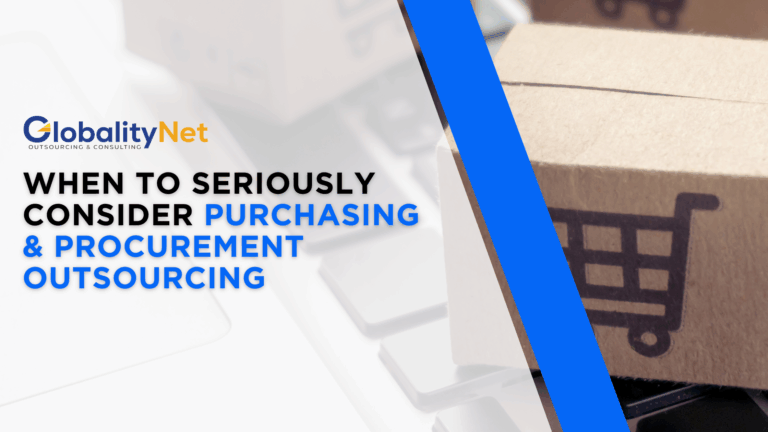Outsourcing Supply Chain Business Processes is Changing the World
Outsourcing supply chain business processes is completely revamping the industry by offering solutions that provide massive savings in overhead thanks to remote workers and third party services. Imagine expanding your team to know the culture and languages of your many clients, work during their day hours and essentially offering 24 hour support while also getting some of the top talent around the world – that is in essence the BPO (business process outsourcing) effect on the supply chain world.
What is Outsourcing in Supply Chain Management?
Outsourcing in supply chain management is the outsourcing of a large part of a company’s supply chain to remote and foreign employees. This allows companies to focus on their main competencies while ensuring that their needs are met while reducing overhead expenses.
Supply chain management outsourcing is more common than ever. That’s because outsourcing allows people to have their needs fulfilled by remote employees at a lower cost than if they had gotten it done themselves.
This outsourcing is made possible partly because of the advancements in technology. Information software, for example, has become easier to use and more reliable. It also cuts down on time spent communicating with colleagues or customers overseas. Let’s go over the following in regards to outsourcing your supply chain needs:
- How does outsourcing supply chain processes deal with globalization?
- What are the benefits of outsourcing parts of your supply chain operations?
- How does outsourcing affect your metrics and KPIs?
- Let’s look at how Ford and American Airlines have used supply chain outsourcing
- How it compares to vertical integration in terms of supply chain related functions
- And what impact it’s having on the supply chain industry as a whole

How Can Outsourced Companies Overcome Demands From Globalization?
What kind of outsourcing strategies does an international or global supplier need to make this happen? These outsourcing strategies might include:
- outsourcing Supply chain logistics (manufacturing, transportation, warehousing, etc.)
- outsourcing Regulatory Compliance
- outsourcing Customer Service
- outsourcing Sales
- outsourcing Accounting
Outsourcing Supply chain logistics means that your company is outsourcing to suppliers the ability to provide you with warehousing, distribution, and transportation needs. This can be done in different ways. Suppliers may be able to provide all of these services or just one depending on what your outsourcing agreement is like.
Outsourcing regulatory compliance means that your company is outsourcing tasks that are related to regulatory compliance. This might include outsourcing audits, verification and validation testing of products, etc.
Outsourcing customer service means that you’re outsourcing the ability to provide your customers with support and services. This could be done by outsourcing call centers or outsourcing help desk support to people who speak different languages and can better assist customers who are from a specific area.
Outsourcing sales typically means outsourcing the ability to sell you products and/or services to your target market. This can be done by outsourcing help desk support, outsourcing telemarketing, outsourcing social media marketing or outsourcing international selling of goods and services.
Outsourcing accounting means that your company is outsourcing the ability to provide financial support. This might include outsourcing general ledger, outsourcing accounts receivable/accounts payable, outsourcing tax filing & compliance, etc.
It’s these last three where a BPO solution can really help your company shine. Imagine you are working with companies shipping from China to the US and that your staff is familiar with Chinese culture (Philippines culture is very connected to Chinese culture in many ways) or even the language? That’s a plus. Not to mention the money you save in hiring a foreign remote employee. That same could be said if a client is shipping from Panama, South America, etc. A foreign remote employee provided by a BPO solution provider who is based in Mexico or Colombia would provide the same benefit and advantages for you.
Why Would a Company Outsource Parts of its Supply Chain?
The main benefits of outsourcing supply chain processes are that it reduces costs by shifting expenses to suppliers who then handle them for you and transfer those expenses to your outsourcing bill. It also makes outsourcing more attractive since you’re outsourcing specific tasks instead of outsourcing entire departments, allowing for increased flexibility in outsourcing.
Outsourcing your supply chain processes can also provide you with access to expertise and resources that might be hard for you to obtain internally.
All this can lead to improved lead times because you can now rely on remote employees to get the job done faster than if you had employed people in your own country. For example, you can place an order in the US by outsourcing customer service and rely on your buyer in China instead of having to wait for people here in the US to start working on it.

How Does Outsourcing Affect Supply Chain Metrics?
What metrics can be used to evaluate outsourcing success? These metrics might include:
- Supply chain performance
- Time to Market performance
- Success rates
- Return on outsourcing investment (ROI)
- Total outsourcing return
Supply Chain Performance
Overall, you want to see no declines in performance when outsourcing your supply chain solutions. You want to, in fact, see an increase when it comes to these things as you now have the ability for more financial resources, better support across time zones, familiar cultures working together and much more.
Time to Market Performance
When outsourcing a supply chain process, time to market refers to the amount of time between a request and delivery. It’s important to note that with increased outsourcing, this could decline and become faster. Especially if you’re working with a BPO solution provider who is local and familiar with your industry. This is ideal since the time to market will decline by having someone who is already in your particular field.
Overall Success Rates
Success rates in supply chain metrics refers to the efficiency of an outsourcing project. In other words, how much work is getting done for the money invested. You want to see a high success rate when it comes to your outsourcing process.
Return on Outsourcing Investment (ROI)
ROI is an important performance metric, and one that is often misunderstood. It measures the amount of money you’re receiving for your investment in outsourcing your supply chain processes. So, if you invest $1 and receive $5, then the ROI is 400%. However, if you invest $1 and receive $2 back, then the ROI is -50%.
The point here is that ROI needs to be looked at in context. To an outsider, it might look like you’re receiving a 400% return on investment since $5 was received for $1 invested. However, if you look deeper and see that the project was an overall failure, then the ROI is -50%.
How to Gauge the Total Return?
The total outsourcing return is important because it ties all these previous metrics together. It calculates the total value of all your returns from outsourcing compared to the total cost, along with timing and other factors. In other words, it calculates the return on your outsourcing investment across all departments.
Does American Airlines Outsource its Supply Chain?
Yes! American Airlines has outsourced its supply chains because it is impossible for the company to manage all of its outsourcing internally.
As a result, they have chosen to partner with a BPO service provider. Why does American Airlines benefit from outsourcing their supply chain processes?
For starters, it allows them to improve their lead times when outsourcing customer service. They can place an order in the US and rely on their buyer in China instead of having to wait for people here in the US.
Secondly, it allows them to tap into a workforce with more experience than they might have internally. For example, their call center agents might be young and don’t yet have the experience needed to place orders in a way that increases satisfaction.
The BPO service provider has experienced staff who can manage these complexities and make improvements on the spot to satisfy customer needs better.
How Much of Their Supply Chain Does Ford Outsource?
Ford outsources 75 percent of it’s supply chain because this model helps them control costs, remain agile, and do what they are best at doing- designing cars without wasting time outsourcing parts.
For example, Ford has a partner in Mexico that makes door panels for the Ford Fusion.
Ford designs the car in the US and then sends that design to their partner. The partner then produces and ships the door panels to Ford’s assembly plant in Hermosillo, Mexico.
And, their customer service, online and over the phone, are shifting more and more to an outsourced team that works with the regions they are supporting. So whether its labor or sales or customer service, their business process outsourcing approach is to improve KPIs and overall Performance as much as possible.
Ford can focus on what they are good at (designing the car) and let their partner do what they are good at (making parts, serving their clients, doing back-end processes like accounting, training and more).
How are Vertical Integration Supply Chain Value and Chain Outsourcing Related?
Outsourcing cost savings have to be passed onto the customer in order for outsourcing strategies to work. Vertical integration can also lead into outsourcing strategies if a supplier has the capacity to outsource their own supply chain processes.
For example, a supplier can outsource their production processes to another supplier and focus on what they do best.
Say the original supplier is trying to decide between outsourcing and vertical integration. If they decide to outsource their production process, their supplier can step in and take it over.
This is beneficial for the original supplier because it frees them up to focus on their core competencies instead of outsourcing all their processes. Outsourcing can also help suppliers who don’t have the capacity to vertically integrate and must outsource their supply chain as well.
What Impact are BPOs Having on the Industry?
Outsourced supply chains have huge impacts on the industry. This outsourcing ability enables companies to remain agile in today’s global economy by allowing them to focus on their core competencies and allows suppliers the opportunity to expand their capabilities.
It is an overall business strategy that has come to be one of the most successful ways for supply chains to remain competitive. When companies are able to expand their capabilities without adding new people, they are able to increase value for themselves and their customers.
GlobalityNet is proud to be able to offer exactly that to their customers as we have experience in the supply chain world as well as many other industries. A quick call or message is all it takes to get all the information you need to see how we can help you:
- Reduce overhead while maintaining or increasing quality
- Give you the ability to serve your customers at all hours
- Permit your team to have cultural ties to your clients across the globe
- Get an experienced team of people to help you with your business processes










